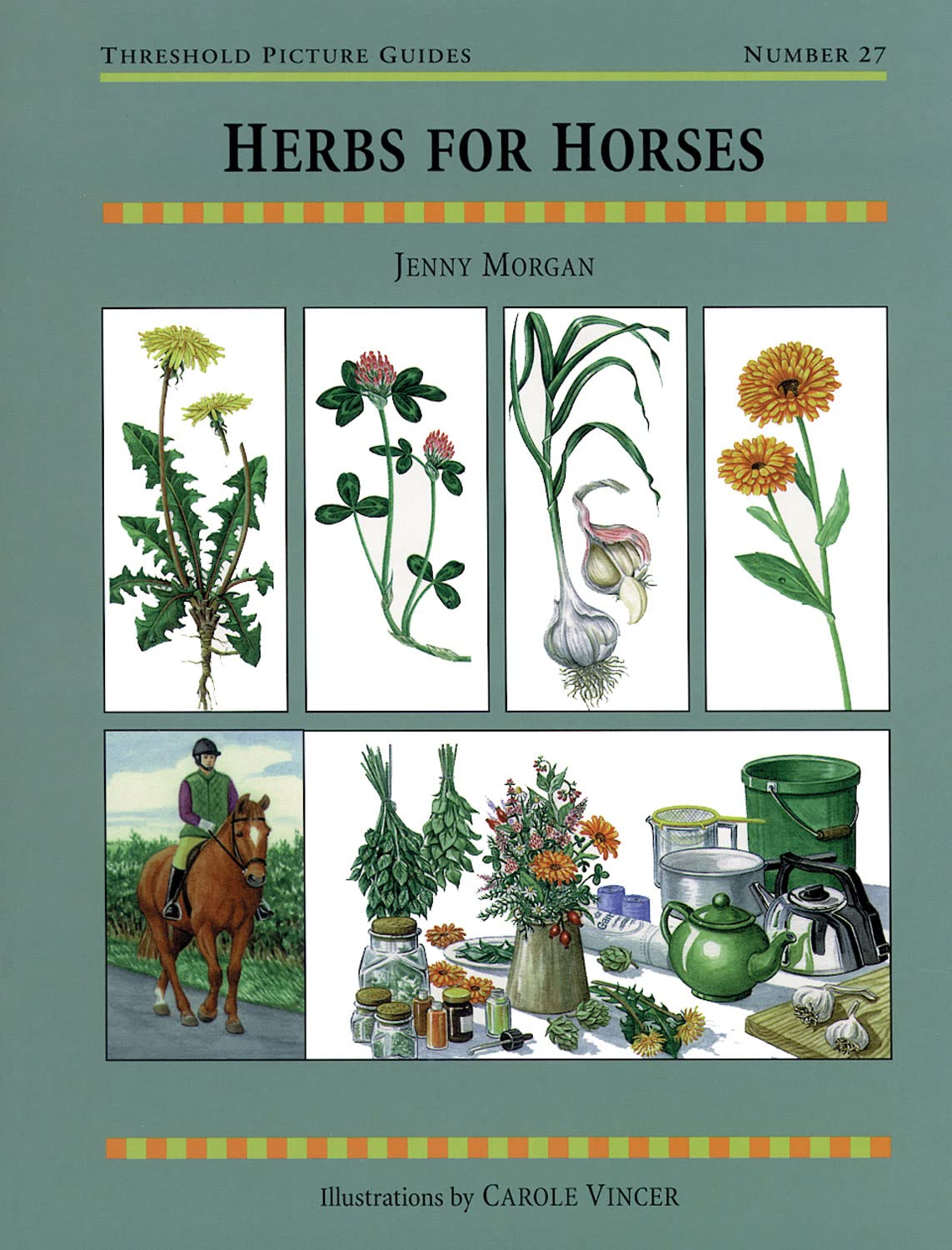About this deal
YouTube sets this cookie to register a unique ID to store data on what videos from YouTube the user has seen. Dr. Carol Michael PhD in the UK recommends making these plants (which contain antimicrobials, saponins, antioxidants, Vitamin E, C, anti-obesity compounds etc.) available to your horse – either in their fields, or gather them and put a selection in their stalls. All these plants grow in rainy climates like the UK and the Pacific Northwest:
Horse herbs – Raspberry leaves can be eaten fresh… usually right off the plant… or dried. Several companies sell the dried leaves with a scoop to give the right amount. It can be put right in with the feed. Yellow star thistle: Most horse owners already know this; those who don’t should. It isn’t so much an herb as a toxic, horse killing weed. Horses usually won’t eat it unless there is nothing else for them to chew on. Once they start, they become addicted. The root is used in herbal preparations as a sedative to relieve nervous tension – such as when a horse arrives at a new yard – or to calm over-excitable horses, without affecting performance. Self-heal (also called Prunella) – it’s quite bitter so only feed the leaves when first introducing. Rich in minerals, including calcium, iodine and potassium, making it useful for horses which have been on poor grazing.
Horse ear positions: what they tell you about a horse’s mood
Natural herbs for horses are an important part of natural horse nutrition. Herbs can help your horse’s body utilize nutrition and aid digestion. Herbs have been around a long time and many cultures such as the gypsies and Native American tribes have used them to help their horses. Some great ideas, here. You left out a number of plants that I know horses in the UK choose to eat regularly, including: hawthorn, yarrow, dandelion and wild rose. Sage – Another herb to avoid with pregnant mares. Sage should be used sparingly. However, it is well known for the treatment of coughs and respiratory problems 17 There are caveats, both to the use of aspirin or meadowsweet. While it is often used to counteract the pain that comes from age or injury, it should not be used in horses with bleeding problems, digestive issues or with kidney or liver problems. It may cause some bleeding in the intestinal tract. Large amounts are toxic. As well as being a mild laxative, this plant is also used to cleanse the blood of impurities, and for rheumatism, arthritis and laminitis. All parts of the plant are safe and effective to use.
Works as a relaxant – rub some oil in your hands when handling a nervous horse – an antispasmodic and antidepressant. You simply fill an old tire with soil and plant your seeds. Drill holes in the tire and then secure the upturned hanging basket to the tire with cable ties. Allowing horses to self-select is always best. I. too, go the “dried herbs in feed by intuition” route, because I know my horses pretty well. However, allowing them to self-select single, unblended, herbs is still the best way, I believe, and within reason, allowing them to determine the amount they want to consume, and for how many days, is also helpful, particularly if you are offering herbs in an effort to sort out an illness/imbalance. A horse may eat a surprisingly large (or small) amount of something for only one or two days, and then they are done, whereas we humans tend to go for the “little and often” approach. Oregano – Another herb that is believed to help the digestive system 14, it has also been said to give relief from flying insects and their bites 14aSome states require pasture owners to go over the pastures carefully to make sure there aren’t any toxic plants in the field. It is wise to look around the outside of the pasture as well. Some trees may drop leaves into the pasture that are toxic to horses. Walnut and red maple are two major problems.
The only way to fix your horse is to help them return to their natural state. Feeding your horse in a manner that is contrary to their innate physiological needs is making their body scream for help." Horse herbs – Oregon grape: This plant doesn’t produce grapes, but it does have some uses. It isn’t toxic to horses, and may help with inflammation. It can also be used topically, either for that purpose or to make use of its antimicrobial and antibacterial properties. Marjoram – High in vitamins A and C, it has positive effects on nervous horses and the digestive system 10 The amount of strawberries that a horse can consume depends on several factors, including size and overall health. A vet should help decide if and how many strawberries horses with insulin resistance or other health issues may have.The second experience involved an infected fly bite. Horses and flies are nothing new. Neither are infections at the place where the horse is bitten. It can be a rather costly vet bill and in some areas it could be a life or death situation. Again, herbs provided an answer. Stimulates the circulation, which in turn improves horn growth. (NB essential oils are powerful and should never be used neat on the horse’s skin, particularly around the nostrils.) Hi Alison – That list was given by Dr. Carol Michael. I did a little research and it seems that sorrel is only an issue if eaten in large amounts, in a short period of time: There are quite a few herbs that are beneficial for the horses digestive system. The main ones would be: Although valerian is a non-addictive herb without side effects, it is a natural tranquiliser and can cause drowsiness, so you should always consult your vet before using it. It is also a banned substance under competition rules.
 Great Deal
Great Deal 